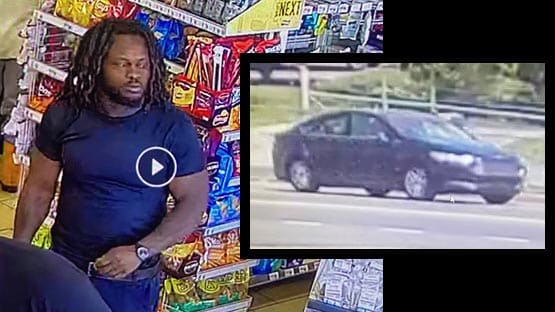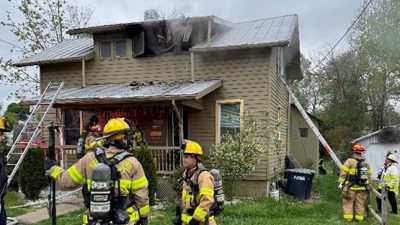
Virginia Gov. Glenn Youngkin vetoed two bills yesterday – one to legalize marijuana in the Commonwealth, and the second was to take another look at sentences for marijuana convictions.
While the legalization bill passed the House and Senate in the General Assembly, the governor pointed to health and safety as his reasons to kill the bill.
HB 698 would have established a framework for the creation of a retail marijuana market in Virginia, to be administered by the Virginia Cannabis Control Authority.
The bill would have allowed the Authority to issue licenses beginning on Sept. 1. However, no retail sales were to begin prior to May 1, 2025.
An identical bill was passed in the Senate (SB 448).
“The proposed legalization of retail marijuana in the Commonwealth endangers Virginians’ health and safety,” said Youngkin. “States following this path have seen adverse effects on children’s and adolescent’s health and safety, increased gang activity and violent crime, significant deterioration in mental health, decreased road safety and significant costs associated with retail marijuana that far exceed tax revenue.
“It also does not eliminate the illegal black-market sale of cannabis, nor guarantee product safety. Addressing the inconsistencies in enforcement and regulation in Virginia’s current laws does not justify expanding access to cannabis, following the failed paths of other states and endangering Virginians’ health and safety.”
According to the National Association of Realtors, in states where both prescription and recreational marijuana were legalized, 22 to 28 percent of commercial members reported a perception of an increase in crime near dispensaries, while 39 to 42 percent saw no change in the perception of crime.
A perception.
The reality does not agree with Youngkin’s opinion or the so-called perception of the NAR.
Researchers with John Hopkins University and the University of Hawaii debunked the so-called increase in local crime rates in a study published in the journal Annals of Regional Science.
Investigators reported that marijuana retailers “have a null effect on average local crime.”
The findings are consistent with those of prior studies concluding that licensed marijuana retailers are typically associated with either no changes or decreases in criminal activity.
Polling shows that the majority of Virginia voters support allowing the retail sale of recreational marijuana.
A second bill passed by both the Senate and House (SB 696), and vetoed by Youngkin, would have created a process to consider modifying the prison sentence of anyone convicted for a felony involving the possession, manufacture, selling, giving, distribution, transportation or delivery of marijuana committed prior to July 1, 2021, who remain incarcerated or on community supervision on July 1, 2024. The bill would have led to an automatic hearing to consider modification of the person’s sentence.
“It is with a heavy heart that we share the news Governor Youngkin has vetoed our cannabis sentence modification bill, SB 696,” said Adrian Rocha, a policy manager for Last Prison Project, an organization dedicated to ensuring no one is in jail for cannabis. “Under the bill, thousands of individuals charged for cannabis offenses under outdated laws would have had their sentences reevaluated in light of legalization.”
The Virginia Department of Corrections reports the average cost of housing an individual in custody (based on 2022 data) is $42,000 per year.
“Instead, the Governor’s veto message not only ignored the intention of this bill but, more importantly, ignored the plight of thousands of families across the Commonwealth whose lives have been permanently altered by prohibitionist laws repealed three years ago,” said Rocha. “Virginia may have ended cannabis prohibition in 2021, but there remains a significant injustice for those individuals who continue to be incarcerated for offenses that are no longer considered illegal.”
Rocha said “the fight is not over.”
“We still have an opportunity to let the people speak and encourage Virginia lawmakers to override this veto,” said Rocha. “It is important that you write to your state representative and senator to support SB 696 by voting to override Gov. Youngkin’s veto and ensure justice for Virginians harmed by cannabis convictions.
“By joining the effort to override the veto and make SB 696 law, you have the opportunity to right the wrongs of the past and ensure that hundreds of Virginians with cannabis offenses have their sentences either reduced or vacated completely.
“This bill is not just about correcting legal inconsistencies; it is about improving public safety by providing individuals with the chance to rebuild their lives and contribute positively to their communities.
“We must continue until no one remains in prison for cannabis.”
Youngkin signed 100 bills on Wednesday, according to a news release, including bills that strengthen law enforcement’s ability to prosecute child predators and expand the Department of Corrections inmate access to health services. The governor also vetoed seven bills.










